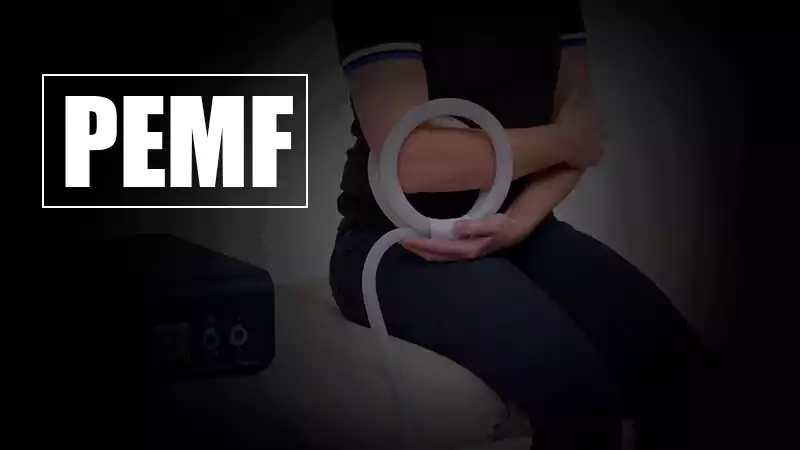What Treatments are Available for Depression
Depression is one of the mental disorders that are most common and causes feelings of sadness and hopelessness.
It can lead to losing interest in activities you once enjoyed, difficulty sleeping, changes in appetite, and feelings of guilt or worthlessness.
While depression can be surely treated with medication and therapy, some natural remedies may help.
Here are some of the most famous treatments for those suffering from mental condition.
Depression Overview
Depression is more than simply feeling blue for a day or two- it’s a Mood Disorder that causes long-term, significant changes in how you feel, think, and behave. It can lead to physical problems and make everyday activities seem insurmountable. If you’re suffering from depression, know that it’s not a sign of weakness and that you won’t be able “snap out” of it on your own.
Depression may need long-term therapy. Don’t get disheartened, though; the majority of people with depression respond favorably to medicine and psychological therapy.
There are numerous other distinct indicators of depression, including:
- feeling easily annoyed or irritated, even over small matters
- Loss of or no interest in activities enjoyed in the past, like sex
- Sleeping problems, such as sleeplessness or sleeping for too long, are other examples of sleep disturbances.
- Tiredness and lack of energy
- Reduced to a major level of appetite and weight loss or increased cravings for food and weight gain
- Anxiety, agitation, or restlessness
- Thinking, speaking, or bodily gestures have been slowed
- Constant self-criticism, feeling like you are never good enough, or beating yourself up over past mistakes.
- Difficulty thinking, concentrating, making judgments, and recalling information are all symptoms.
- Thoughts of death, suicidal ideas, suicide attempts, or actual suicides are common.
- Back pain and headaches, for example, can be caused by stress.
If you have experienced any of the following depression symptoms for more than two weeks, it is likely that you have depression.
Causes of Major Depressive Disorder
Depression is caused by genetic, biological, environmental, and psychological factors.
Depression can run in the family trees, but it doesn’t mean that children of parents with depression will automatically become depressed. There may also be some other factors that could contribute as well, like genetic and environmental factors.
Biological factors include brain chemistry and hormones. Highs and lows in the levels of certain chemicals in your brain may contribute to symptoms of depression.
Hormonal changes can also affect your mood. For example, some women experience depression during or after pregnancy (postpartum depression). This is likely due to hormonal changes and the stress of caring for a new baby.
Environmental factors include anything from stressful life events (such as job loss or divorce) to a history of abuse or trauma.
Psychological factors include low self-esteem, perfectionism, and negative thinking.
Risk Factors
Depression has several other risk factors, including:
- Family history of mild depression
- Personal history of depression
- History of substance abuse
- Chronic medical conditions
- Certain medications
- Poor sleep
- Untreated anxiety or stress
Significant life changes or trauma, such as the death of a loved one, divorce, job loss, or financial problems
If you have any risk factors, please talk to your doctor or mental health professional. They can help you find ways to reduce your risk of developing depression.
Diagnosis of Severe Depression
If you think you may have mild to major depression, please see your doctor or mental health professional. They will want to know and ask about your symptoms and how long you’ve been experiencing them.
They’ll want information about your medical history and any medicines you take.
Your regular doctor may do a physical exam and order blood tests to rule out other conditions that may be causing your symptoms. They can also ask you to go to a mental health professional for an evaluation.
A mental health professional will ask about your symptoms and how they affect your life.
They will also ask about your thoughts, feelings, and behaviors.
They may use a questionnaire or depression scale to help make a diagnosis.
Major Depression Treatment Options
There are many result-rich and effective treatments for depression, including:
Psychotherapy
Psychotherapy, commonly called counseling or talk therapy, can help you understand your thoughts and feelings and how to manage them.
It can also help you with your coping skills for dealing with difficult situations.
Cognitive-Behavioral Therapy (CBT):
CBT is a psychotherapy that helps you identify negative thinking patterns and replace them with more positive ones.
The therapy can also help you develop coping skills for dealing with difficult situations.
Interpersonal therapy (IPT)
IP is a type of psychotherapy that helps you identify and manage relationship problems.
It can also help you develop communication and problem-solving skills.
Medication
Medication can help relieve symptoms of depression.
Antidepressant medications are the most common type of medication used to treat depression.
Electroconvulsive Therapy (ECT)
ECT is a depression therapy that uses electrical currents to stimulate the brain.
It is typically only used when other treatments haven’t been effective.
Lifestyle Changes
Making lifestyle changes can also help relieve symptoms of depression. Exercise, techniques for relaxation, and a healthy diet can all help improve your mood.
If you think you have even moderate depression, please see your doctor or mental health professional.
FAQs
What is the Difference Between Depression and Sadness?
Sadness is a normal emotion that we all experience at times.
Depression is more than just feeling sad, however. It can cause a wide range of physical and mental problems.
The Signs and Symptoms of Depression?
Symptoms of depression can vary from low to major.
They may include changes in mood, decreased interest in activities, changes in weight or appetite, fatigue, difficulty concentrating, feelings of worthlessness or guilt, and thoughts of death or suicide.
What Causes Depression?
There is no single cause of depression. Instead, it is caused by biological, psychological, and social factors.
How Can Selective Serotonin Reuptake Inhibitors (SSRIs) Help with Depression?
SSRIs are one type of antidepressant medication that increases levels of serotonin in the brain.
It plays a role in mood and emotional regulation.
SSRIs treat significant persistent depressive disorder, dysthymia (a chronic, milder form of depression), and other mental disorders.
Never Hesitate to Ask for Help
Depression is a mental illness that can profoundly affect every aspect of your life—from your mood and energy levels to your thoughts, behavior, and physical health.
If you’re feeling hopeless, helpless, or unable to cope, it’s essential to seek help from a mental health professional.











Share